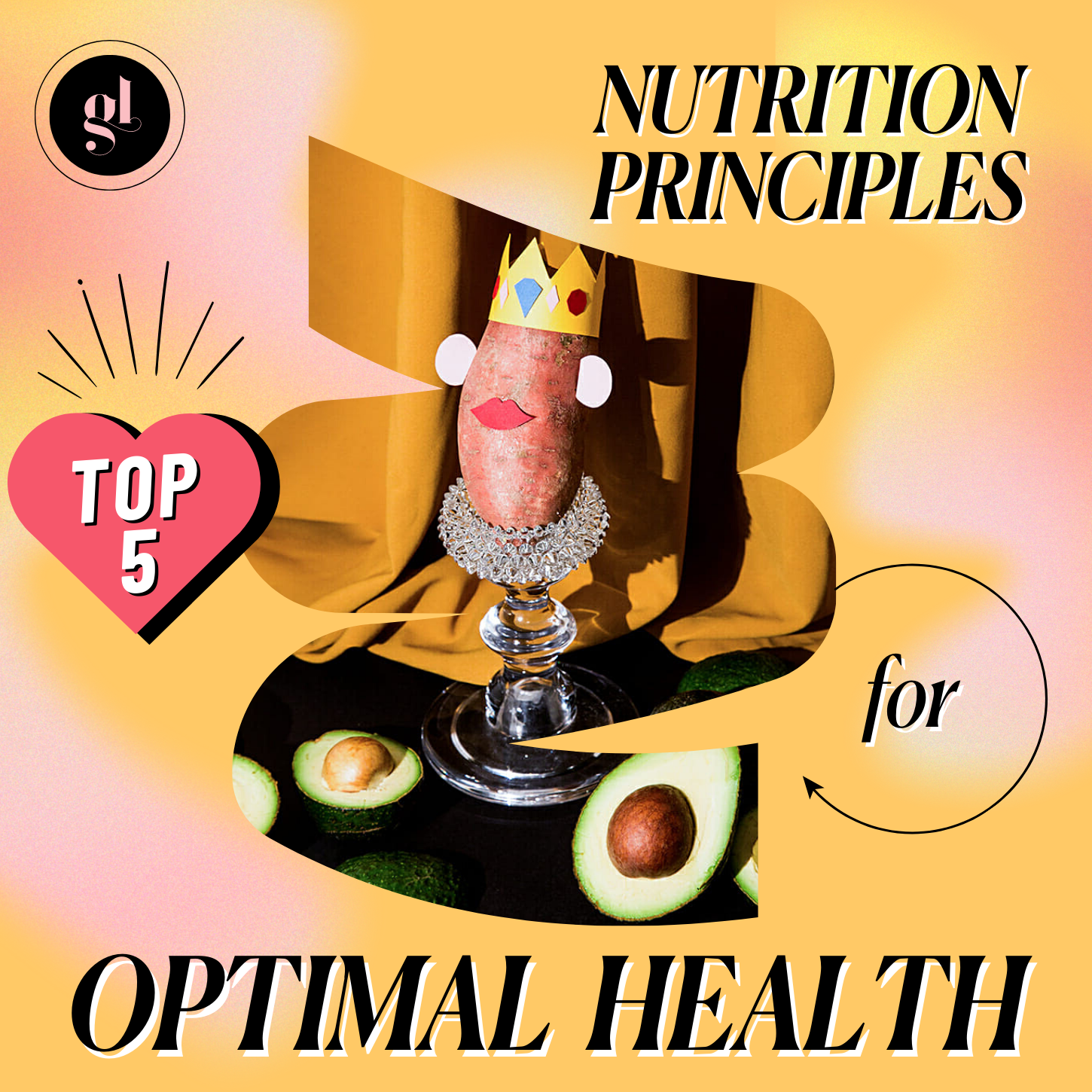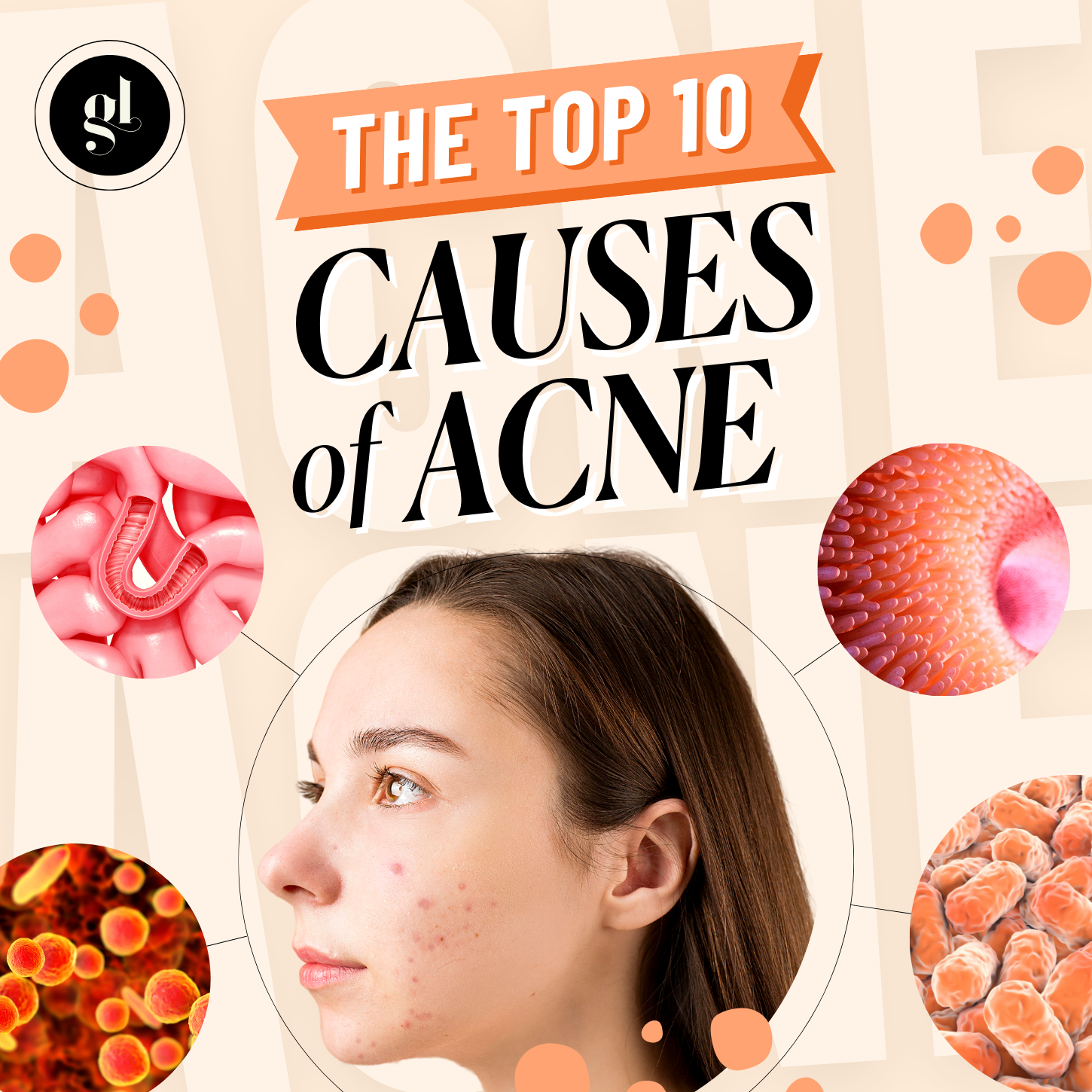One of, if not the greatest, determinants of your health during your lifetime is the food you choose to put in your mouth every day.
Unfortunately, our Western medical system has really missed the mark. We have a health care system that is great at identifying problems once they exist, but they are not very good at preventing them in the first place. We have already missed our greatest opportunity when we see disease rear its ugly head.
It can be very difficult to get credible, evidence-based information on nutrition. And with all the different diets and theories out there, it’s easy to conclude that
there is no consensus.
However, when it comes to general principles, the science is very clear.
So if you're looking to improve your health, start by following these five basic nutrition principles. With a plant-based diet and some other simple tweaks, you can feel better than ever before!
Transcript: Top 5 Nutrition Principles for Optimal Health
Sarah:
Do you wake up each morning feeling sluggish, tired, or just not yourself
Perhaps it’s something more serious like an autoimmune disease, cancer, heart disease, diabetes?
I’m going to be straight up and cut to the chase here, so listen in: educating yourself on how to eat the optimal foods for your body is the best thing you can do for your overall health. The greatest determinant of your health during your lifetime is the food you choose to put in your mouth every day.
Unfortunately, our Western medical system has really missed the mark. We have a health care system that is great at identifying problems once they exist, but they are not very good at preventing them in the first place. We have already missed our greatest opportunity when we see disease rear its ugly head.
Now, I know how difficult it can be to get credible, evidence-based information on nutrition. And with all the different diets and theories out there, it’s easy to conclude that there is no consensus.
However, the science is actually very clear and today I want to share with you what some leading doctors and health practitioners have to say about what is most important when it comes to food choices.
The number one principle is:
1. Go more plant-based
When it comes to a healthy diet, it all boils down to the more plants you eat and the less animal products.
Dr. Joel Fuhrman:
Now, there's a big movement in this country to convince people that animal products like meat, chicken, steak, fish and eggs are healthy for them. But, that's not what the studies, the longterm studies show. I'm not aware of any longterm studies that went on for decades showing that high levels of animal products leads to longer lifespan. We always see the same thing, that when studies have a large number of people, thousands of people, when they look at hard endpoints like death or cancer, or heart attacks, and thirdly they go on for decades, then we see, as we ratchet animal products up in the diet, so do both cardiovascular death and cancer deaths. Dramatically.
But, keep in mind that animal products have no fiber, and they have no phytochemicals, and they have no antioxidants, and they're relatively low in micronutrients as a whole. They're rich concentrated sources of calories without the fiber and phytochemicals that suppress appetite. They generally lead to more overweight people, bigger, larger more overweight people. With a higher BMI, you have shorter lifespans.
And because animal products comprise about 30% of the diet, and processed foods comprise over 60%, people can't get the nutrients they need with the little piddling amount of vegetables they eat. If your diet is not vegetable based, then you can't be living healthfully and you better live close to a hospital.
Sarah:
And what has lots of fiber? And phytochemicals? And antioxidants and micronutrients? Plants do. Second principle is..
2. Avoid foods that promote inflammation
Dr. John Dempster:
There's a lot of foods that are going to start to create an inflammatory environment in our stomach, so we want to be very careful with the amount of fast food we're consuming, foods that are excessive in gluten, dairy, sugar, and soy. These are all foods that can really start to create an undesirable digestive situation.
Dr. Liz Lipski:
Other foods that I see that are very inflammatory are sugar, refined sugars. I like a sweet now and then just like anybody else. I don't think we have to be perfect with our diets in most cases but what I'm really looking for is a reduction in sugar. I was teaching an online class for a university a few years ago, and one of the students said, "Sugar is my nemesis, when I start eating it, I can't stop." It's very addictive, I've seen this in my own body. And she said, "I'm going to stop eating sugar for these eight weeks, would anybody like to join me?" And almost all of us joined her on this eight week no sugar journey. And what we discovered was that in eight weeks there was one woman who had had migraines for 12 years and her migraines were completely gone.
Almost everybody reported better moods, better sleep, better energy and one man lost over 25 pounds, which made us really dislike him a lot because I didn't lose any weight by doing it. But that's just the power of one inflammatory food in your body and the average person is eating five or six ounces a day of refined sugar.
Sarah:
Sugar is my nemesis too! If I feel like something sweet, I make myself a nice fruit salad and sometimes even blend frozen banana to make plant-based ice-cream and that does the trick. Next principle is to:
3. Eat more whole foods
Dr. Liz Lipski:
And so, what I'm really looking at is what I want people to eat is 80 to 90% of their food is real food. And to really think about a whole foods diet. I've worked with clients when I say, "I want you to cook," and they look at me with deer in headlight eyes, you want me to what? And the truth is I'm a really busy person, but for me, cooking is self-love and it's self nurture and I know that when I make my own food, I know exactly what's going into my body and I actually feel better energetically when I make my own food.
Sarah:
Eating whole foods is indeed self-love to your body. And what do I mean by whole foods?
Whole foods are foods that have not had any of their natural features taken away or any artificial substances added. They are in their natural state and have either not been processed at all, or processed very minimally.
So for example, it is better to use a whole avocado in your salad rather than just using avocado oil as avocado oil is processed and you’ll be getting all the extra benefits that an avocado has that avocado oil doesn’t. Or when you consume fruit juice rather than the actual fruit itself, you’re 1) getting a concentrated dose of fruit sugars, 2) consuming the additives and preservatives that are often added, and 3) missing out on the fiber that a whole fruit contains which is key to good gut health and blood sugar balance.
And the easiest way to make sure you’re eating more whole foods and less processed foods is to cook from scratch as much as possible which is our fourth principle.
4. Cook from scratch as much as possible
Dr. Liz Lipski:
So one of the big things that I ask people to do to eat better is to cook and to cook from scratch and to start honoring that, I think it's so important. I had a client once and he said, "My wife and I, we go to one of the health food stores and we get all of our food off of there gourmet food bars, and we buy that and we warm it up and that's what we eat. And then my mother-in-law came to visit and she's from France and she started cooking from scratch all of our food and we felt within a few days, energetically how much better we actually felt."
Sarah:
And if you are one of those people who have three left feet so to say in the kitchen, have a search on google and make use of the thousands of plant-based recipes there are out there.
And finally, our fifth and final principle for today’s video is:
5. Eat mindfully
It’s not just about what you eat but how you eat.
And what I mean by that:
- Don’t eat in a rush or under stress
- Chew your food properly
- Don’t drink lots of fluid with your meals
Dr. John Dempster:
If we can't digest our food properly and if we can't eliminate waste properly, we have a big problem. This really comes down to the core of all health conditions that we work with in our clinic, is we need to assess and insure that our patients' digestive tracts are working as best as they possibly can. This literally starts with how we approach food that's in front of us. These are things that we teach our patients. One of them is to actually make sure that your body is in a very relaxed environment. We can't be eating and digesting our food properly if we are in the fight or flight state. We need to be in the rest and digest mode. We also shouldn't be mixing a lot of different fluids with our meals. That's going to really dilute and deplete a lot of the vitality of the digestive juices and enzymes. Lastly, we want to make sure that we're chewing. We want to make sure we chew our food. If we don't chew our food properly, we're actually going to be behind the digestive process. This is by as much as one-third. We want to pretend that we approach our stomach like it doesn't have teeth, which of course it doesn't, but we want to think about that when we're chewing.
Sarah:
So eating mindfully might mean sitting down for your meals and scheduling in at least 30 minutes. It might mean eating around the table instead of in front of the tv. It might mean eating with chopsticks and not a fork if that’s a way to slow you down!
But why exactly is eating mindfully or as some people call it, digestive hygiene important?
Dr. John Dempster:
If somebody is not digesting their food properly, whether it's inadvertently or they have a condition, those foods are not going to be broken down into usable forms. Really, that's what it is. Food is a delivery system of nutrition. We need to break those foodstuffs down, though, into particles that our body can absorb. If we can't absorb nutrients, we have a big problem. Nutrients are the foundation of all things health. That could be any aspect of health, including mental health. We need to insure that we are doing the proper digestive processes, the proper digestive hygiene so that we can give our food the best chance to be broken down and absorbed into nutrients.
Sarah:
And that’s a wrap to this video on 5 important principles of an optimal diet. But before you go, I would love to hear from you. Don’t only like and subscribe, but please share in the comments which principle you are currently working on or which one you would like to start introducing. And if you would like to learn more about how what you eat can support not only your physical health, but also your mental health too, check out this video here.














What Do You Think? Comment Below: